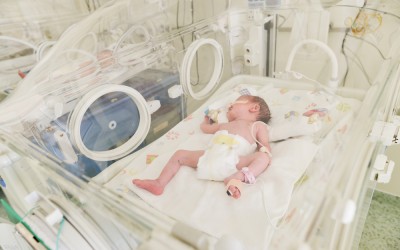
Is a Doula for You-la?
Article provided courtesy of Doula Spot and written by Jake McKenna Ibarra and Ariela Simerman
 From the onset of symptoms to the complications that often arise during labor and delivery, preeclampsia looms overhead, threatening to disturb the precious and miraculous endeavor of becoming a mother. The personal support system and professional expertise a doula provides can make all the difference in the world in managing preeclampsia, delivering a healthy baby, and promoting mental and emotional health post-partum.
From the onset of symptoms to the complications that often arise during labor and delivery, preeclampsia looms overhead, threatening to disturb the precious and miraculous endeavor of becoming a mother. The personal support system and professional expertise a doula provides can make all the difference in the world in managing preeclampsia, delivering a healthy baby, and promoting mental and emotional health post-partum.
Some symptoms of preeclampsia are subtle and can go relatively unnoticed amongst the array of bodily changes women experience during pregnancy. Others are more jarring and can cause severe anxiety, which as we all know, does not bode well for mother or baby. In many cases, women develop hypertension (high blood pressure) before their pregnancy reaches term, and symptom management is the elective course of treatment. This requires a great deal of patience and care, assuring the prospective mother gets a sufficient amount of bed-rest, adheres to salt-free diet, makes frequent visits to their physician, and takes all required medications. Fears and frustrations can easily take hold during such a delicate time; this is where a doula comes in.
Doulas provide emotional, moral, and medical support, helping to ease anxiety and prevent distress, while maintaining symptom management. Dealing with their own fears, prospective fathers often internalize their partner's worry, encumbering their ability to provide round-the-clock support and comfort. While a doula's primary objective is to nurture the mother, fathers benefit from the support of a doula as well.
Unfortunately, mothers with preeclampsia often require drastic medical interventions that go far beyond symptom management. Emergency C-section and induced pre-term delivery are every prospective mother's worst nightmare. Even when a pregnancy comes to term, preeclampsia often derails labor and delivery, making for an extremely difficult and potentially fatal birth. Extremely high blood pressure, one of most prominent signs of preeclampsia, can cause hemorrhaging and severe blood loss, which can be shocking and extremely upsetting to everyone involved.
A recent study shows that women who survive preeclampsia are four times more likely to experience post-traumatic stress disorder (PTSD) than women who undergo a healthy pregnancy. Having a trusted doula there to advocate for a woman and carry some of the emotional burden during such a distressing time can reduce short-term and permanent trauma and promote long-term healing not only for the mother, but for those close to her as well.
Hearing your pregnancy is "at risk" replaces pregnancy euphoria with fear, anxiety, and the unknown outcome. A specialized doula is one of the few levels of comfort a high-risk mom can have. An antepartum doula is trained to support moms on bed rest and in other high-risk situations. Your doula has access to resources and referrals to other specialty doulas like bereavement/loss and miscarriage doulas (if needed). Many specialty doulas choose the specific area because they relate to a similar situation adding an additional layer of patience, compassion, and understanding. If you or someone you know has preeclampsia, find out if a doula is a good fit for you and for your family.
 Pictured right Jake McKenna Ibarra is a certified bereavement doula and certified in perinatal mood and anxiety disorders, through PSI (Post-Partum Support International) as well as a member. Ibarra lives with her family in her hometown San Francisco.
Pictured right Jake McKenna Ibarra is a certified bereavement doula and certified in perinatal mood and anxiety disorders, through PSI (Post-Partum Support International) as well as a member. Ibarra lives with her family in her hometown San Francisco.

Pictured right, Ariel Simerman is a recent UCLA graduate with a degree in English and an emphasis in pre-medical studies, and is currently applying to medical school with aspirations of becoming an Obstetrician and Gynecologist.
Related Articles

Doulas can help bridge the gap for any mom, but especially those most vulnerable to maternal illness and death.

Stories of our brave women and families who have been affected by preeclampsia and HELLP syndrome. Please note that due to a technical issue, we are currently fixing the images on this page.

What is Preeclampsia? Preeclampsia is a hypertensive disorder that occurs only during pregnancy and the postpartum period and affects both the mother and the unborn baby. Affecting at least...

Birth Trauma Resources Between 25 and 34 percent of women report that their births were traumatic. A traumatic birth experience is defined by circumstances in which the individual patient bel...

Meghan Markle is opening up about her experience with postpartum preeclampsia in the debut episode of her new podcast, Confessions of a Female Founder. In the episode with her first guest and clo...
1732072344.png)
While the Preeclampsia Foundation has been championing patient advocacy and representation for all families affected by hypertension in pregnancy throughout our 25 year history, we recognized the uniq...

For many members of the preeclampsia, HELLP syndrome, and eclampsia community, the neonatal intensive care unit (NICU) is a life-changing part of their pregnancy and birth experience. Parents from our...

Resultados de varios estudios apoyan la hipótesis de que el estrés causado por un embarazo y parto traumáticos puede en muchas ocasiones anular la habilidad de salir adelante emoc...

As an advocate who served on the planning committee for the Foundation’s Chicago Promise Walk and 5K Run for numerous years and currently serves on the Patient Advisory Council, Jasmine Mago is...

